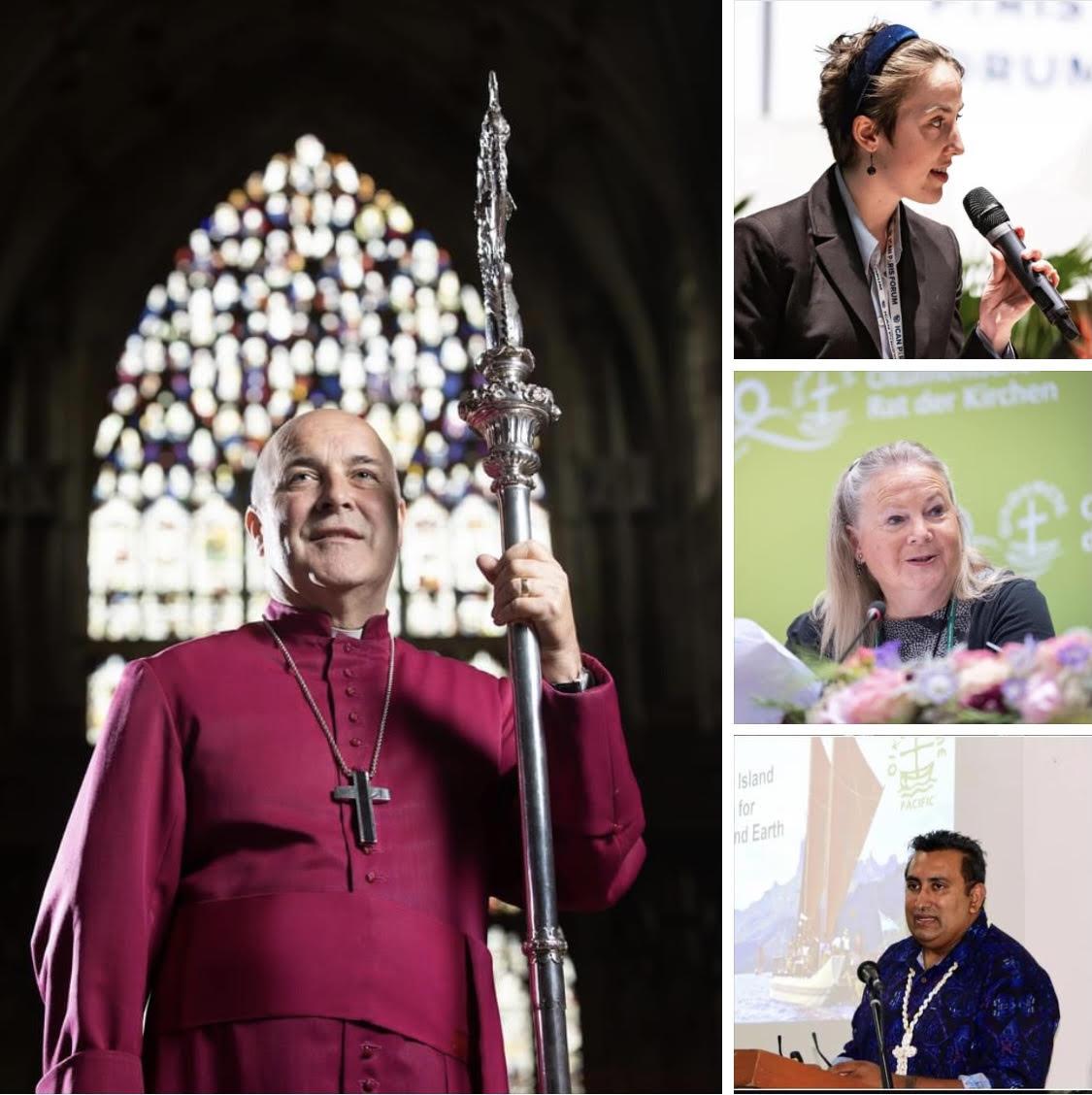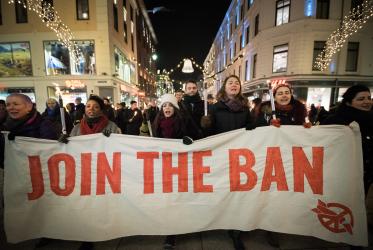Encouraging is the recent entry into force of the Treaty on the Prohibition of Nuclear Weapons. But this milestone occurs amid grim obstacles such as the harmful effects of nuclear weapons testing on Pacific island nations, and the refusal of some nations to sign the treaty.
Rev. James Bhagwan, general secretary of the Pacific Conference of Churches, said that the specter of nuclear weapons testing has long cast a shadow over his region. “The people and the environment of the Pacific have suffered as guinea pigs for the proliferation of nuclear weapons,” he said. “That’s our reality.”
Archbishop Stephen Cottrell, the 98th Archbishop of York, reflected that, although not all Christians are pacifists, they can still arrive at a point of agreement regarding a world free from nuclear weapons.
“I think from a Christian point of view issues of war, and the possession of weapons of war, is a contested area,” he said. “But weapons of mass destruction can never be used in a proportionate way, and therefore can never be used. It follows that they should never been possessed.”
Alicia Sanders-Zakre, policy and research coordinator for the International Campaign to Abolish Nuclear Weapons, said that the Treaty on the Prohibition of Nuclear Weapons has become international law—but not for nations that haven’t signed on. “So what does that mean?” she asked.
Other treaties which have banned weapons—such as cluster munitions, land mines, and chemical and biological weapons—helped delegitimise and stigmatise those weapons around the world. Governments then responded positively to the increased internal and external pressure they were facing to be on the right side of the history books, and committed to a complete legal ban of such weapons.
"These treaties have impacted the behavior of states that have not joined the treaties,” Sanders-Zakre explained.
Bishop Mary Ann Swenson, vice-moderator of the WCC central committee, said that Christians can heed God’s call to choose life. “The danger in the world today is the potential to worship power—and the power that we have to destroy creation—more than the God of creation,” she said. “How much humanitarian care is lost due to the resources that are spent on nuclear proliferation?”
Deacon Adebayo Anthony Kehinde, from Church of the Lord Worldwide in Nigeria, served as moderator for the conversation. “The role of Christians is as guardians of creation,” he said. “It is inspiring to hear from some of the most affected communities that are seeking justice.”







